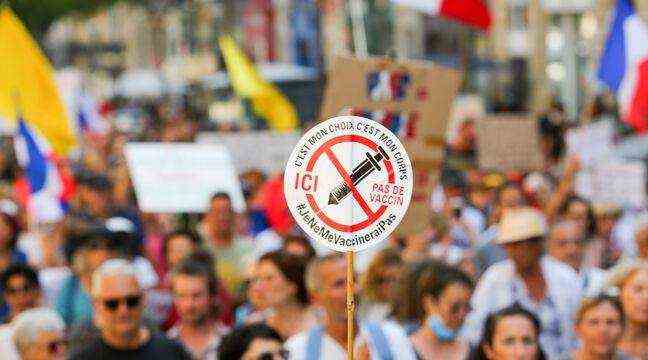Learn from the Covid-19 crisis to face future crises of the 21st century. This is the ambitious challenge launched by the Economic Analysis Council (CAE),
via a note published this Wednesday. “The management of the crises of the 21st century, from pandemics to the climate crisis, rests above all on cooperation and trust between all the actors of society”, assure the authors.
However, in the light of their analysis, it is precisely this cooperation and this confidence that France lacked to cushion the economic shock of the coronavirus. “Countries where trust in government and in others [citoyens] is the strongest resist the crisis better than the others, ”says Daniel Cohen, co-author of the note and professor at the Paris School of Economics (PSE).
Confidence deficit
Indeed, “in countries where interpersonal trust is high, individuals trust each other more about voluntary compliance with social distancing in public spaces. This leads to less demand for strict formal restrictions such as containment, ”the authors continue. In addition, “the support and respect of the measures by the population strongly depend on the credibility of governments and (reciprocal) trust between the authorities and the population”.
Unfortunately, from the start of the pandemic, France suffered from a deficit in this area. “In April 2020, the French were 40% to consider that the government had managed the crisis well”, recalls the CAE. While at the same time, these rates were significantly higher in Germany and the United Kingdom (with 75% of respondents satisfied with their government). This initial lack of confidence was not recovered later.
A scientific agency independent of politics
The government’s communication on the shortage of masks is particularly revealing in this regard. After affirming, through the voice of his spokesperson, that the masks “were not necessary if one is not sick”, the executive ended up making it compulsory. Enough to fuel an already entrenched mistrust. “We had to say from the start that we did not have enough masks and that we would distribute them sparingly, rather than saying that they were useless”, had also recognized the boss of senators LREM, François Patriat.
If the CAE does not explicitly mention this episode in its report, it nevertheless recommends giving France a real health agency independent of political power. “Such a body could both produce public data and surveys, so that the scientific truth does not come from the government,” suggests Daniel Cohen. The authors therefore wish to review the functioning of “Public Health France”, which is currently attached to the Ministry of Health.
Improve scientific culture
Having a truly independent agency would make it possible “to maintain [des citoyens] in scientists, ”says the CAE. Indeed, if the executive very quickly surrounded itself with a “Scientific Council” to inform its decisions, the latter was mainly made up of doctors specializing in epidemics, which “made it difficult to assess the other dimensions of the disease. the crisis, ”notes the report. The deterioration in the mental health of the French was thus slow to be taken into account: it was not until February 2021 that a psychiatrist was appointed to the Scientific Council.
To strengthen confidence, the CAE finally proposes “to improve science education” in schools. Indeed, the authors of the note recall that the higher the results of a country in the PISA tests, the more the citizens of that country have confidence in scientists. This then makes it easier to implement public health policies, such as the vaccination campaign, without resorting to coercion.
In order to face the next crises more calmly, it will therefore be necessary to work on this trust between citizens, scientists and government. This is not unrealizable: the CAE notes that the executive “chose to trust” companies during the crisis, by opening the financial valves and organizing a posteriori controls, which made it possible to keep the economy at bay. flow. The challenge for the future will therefore be to apply the same attitude – “transparency and readability” of decisions, “benevolence and fairness” – towards citizens.

